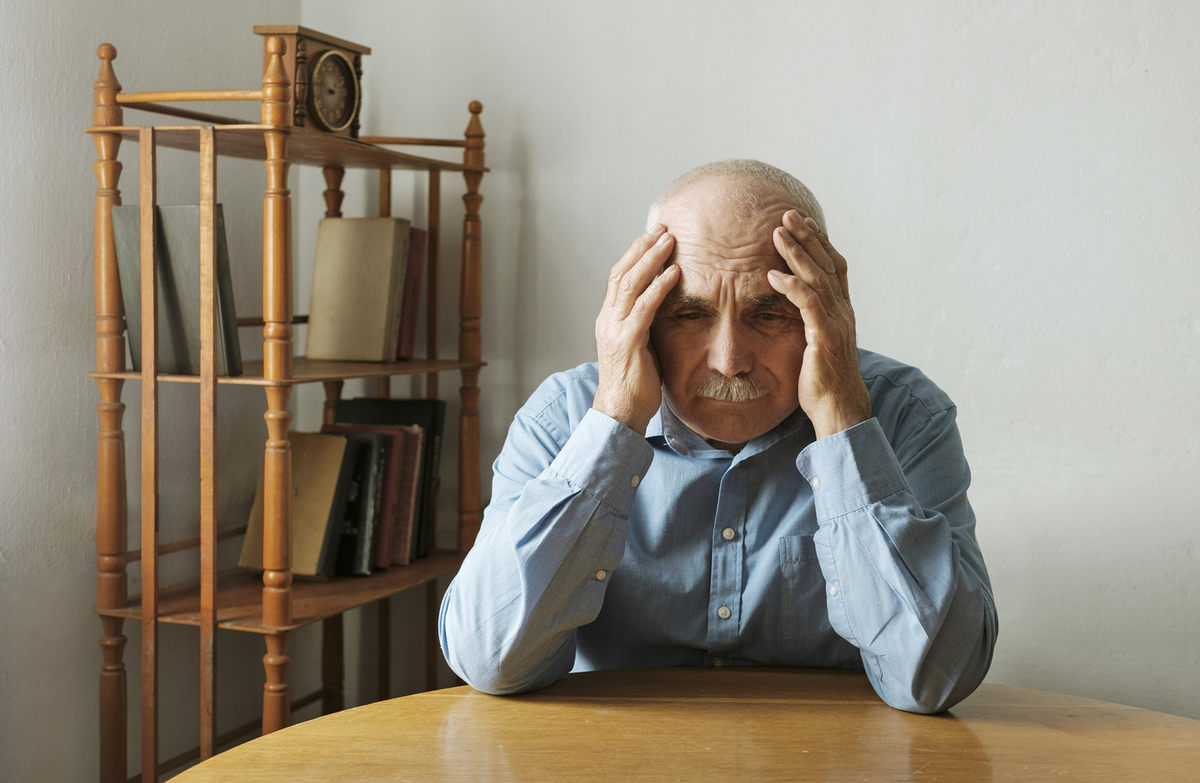Fred and Margaret were happily married for 30-odd years. Then, dementia came between them — and dementia doesn't only get progressively worse, it has a face that many people who haven't seen it aren't even familiar with.

Like anywhere between 10 and 70 percent of dementia patients, Margaret (no, not her real name) suffers from delusions, in her case the kind that makes her think those closest to her are out to get her in some way. Like an estimated 35 percent of dementia patients, Margaret has on occasion become physically aggressive.
Fred still loves the woman Margaret used to be, but caring for her has become increasingly mentally difficult, especially with the constant slew of insults he throws her way.
The care they get has greatly been reduced since the advent of COVID-19, and at the same time, Margaret's symptoms have worsened significantly. Fred, who is elderly himself and finds himself responsible for most of his wife's care — amid complaints and angry outbursts on her part — says he feels "trapped". He's operating on autopilot, and his energy to keep going is fast running out.
How has COVID-19 impacted caregiver stress?
Fred is, unfortunately, far from alone.
An Argentinian study found that the coronavirus pandemic placed people who are caregivers for a relative with dementia under a lot more stress than before COVID-19, and that the stress levels rose with the severity of dementia. Services that were previously provided coming to a halt, preventing the spread of COVID-19 among people with dementia who wanted to go outside, and the stress of having to provide all the care were among the main reasons for which caregivers' mental health was negatively impacted.
Another study, published in The Lancet, highlighted what caregivers already know — dementia care is desperately lacking right now, and desperately needed. Here, the people with dementia themselves are the main point of focus. But relatives who care for loved ones with dementia know that they're often an afterthought. During this time, the combination of their own stress, their increased (and unpaid) workload, and managing the pandemic-related stress their loved one may experience even if they often forget there's even such a thing as COVID-19 can easily become too much.
Staying strong and keeping sane: Tips for caregivers to dementia patients during the pandemic
1. Calling on your existing social support network to share care
Caregiver burnout is more likely to set in if you simply don't have anyone else to share the burden of care with, all the responsibilities fall on your shoulders, and you never get to switch off. Some dementia patients require constant care, but no one person can provide it all. To share care for a parent, spouse, or other relative who has dementia without increasing the risk of COVID-19 too much, you could call on a trusted other relative, friend, or neighbor to spend some time with your loved one while you go outside.
During this time, you could engage in minimal-risk activities or essential ones, like taking a stroll outside in the fresh air, or going grocery shopping. Anything that allows you to feel like you're getting a mental break is good.
If someone who can spend physical time with your loved one is unavailable, maybe someone can engage in an online video call with your loved one with dementia, while you go do something in another part of the house — take a long bath, rake some leaves in the yard, or read a good book.
2. Get a new routine going
Routines are well-recognized as a way to provide predictability and comfort, while slowing cognitive decline in people with dementia. The pandemic will have disrupted yours, but now, think of ways to establish a new routine. It could be divided into practical tasks that need to be performed, activities that will benefit both caregiver and dementia patient mentally, and hopefully much-needed downtime for the caregiver, as well.
3. Incorporate meaningful activities int your day
On that note, meaningful activities that have been scientifically proven to boost the mental wellbeing of people living with dementia — as well as, most likely, their caregivers — include:
- Physical activity, which is good for mind and body alike. Safe exercises could be something as simple as a walk around the house or the yard, or something as (perhaps) new and exciting as some chair aerobics with the help of online video instruction. Yoga, or Tai Chi, too, could be explored.
- Religious engagement is beneficial for the mind if you are a believer. Try praying together, streaming a religious service, or singing hymns together regularly.
- Fun activities could include doing puzzles together, singing, trying out a cooking class online, or watching and discussing old movies. Many people with dementia, who can remember their younger years well, find it comforting to revisit the past, including with the help of pictures.
Taking care of everyone's basic needs — for nutritious food, company, and hygiene, but also a good night's sleep — is the foundation of a successful routine, but higher-level activities that meet mental needs are just as crucial.
4. Keep loneliness at bay
If you are the live-in caregiver of someone with dementia, it's likely that you're rarely physically alone — but that doesn't mean you cannot feel lonely and socially isolated. That's true even if you're not in Fred's shoes, and your loved one with dementia is not angry, depressed, or aggressive.
That may mean low-risk in-person visits or walks, or it may mean online ventures. Play a game with your neighbor, friend, or grandchildren, discuss a book, take a course, or whatever else helps you feel connected and fulfilled.


Your thoughts on this